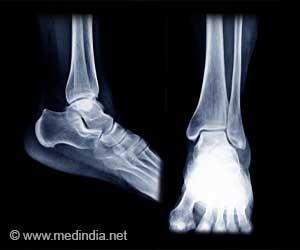A team of researchers from the United States, the Netherlands and Iceland has identified three genes containing common mutations that are associated with altered kidney disease risk.
The most common protein in the urine of healthy individuals, Tamm-Horsfall protein, though discovered earlier, its functions and its relationship to chronic kidney disease risk remained unknown for almost 60 years. A team of researchers from the United States, the Netherlands and Iceland has identified three genes containing common mutations that are associated with altered kidney disease risk, the UMOD gene which produces the Tamm-Horsfall protein. The findings are published in the May 10 issue of Nature Genetics.
More than 20 million adults in the United States have chronic kidney disease characterized by reduced kidney function or kidney damage. The progression of chronic kidney disease can lead to kidney failure and the need for dialysis or transplantation. In addition, chronic kidney disease increases the risk of cardiovascular diseases, mortality and medication side-effects. Known risk factors for chronic kidney disease include hypertension and diabetes.The research team conducted genome wide association studies of more than 20,000 people enrolled in four large population-based studies of cardiovascular disease risk factors: Atherosclerosis Risk in Communities (ARIC) Study, the Cardiovascular Health Study, the Framingham Heart Study and the Rotterdam Study. They further replicated their findings in another 20,000 participants. Of more than 2,500,000 genetic variants that were evaluated for each study participant, the researchers found strong statistical evidence supporting three genes, UMOD, SHROOM3, and STC1 as novel risk genes for reduced kidney function and chronic kidney disease.
"Previous research showed that rare mutations in the UMOD gene cause hereditary forms of severe kidney disease. Our research indicates that a common genetic variant with a frequency of 18 percent in populations of European ancestry is associated with about 25 percent lower risk of chronic kidney disease," said the lead author of the study, Anna Köttgen, MD, MPH, a researcher in the Johns Hopkins Bloomberg School of Public Health's Department of Epidemiology. Researchers at Johns Hopkins described another novel genetic variant that increases risk of kidney disease among African Americans in a separate study last year.
"We have known for a long time that a higher level of proteins, such as albumin, which aren't usually present in urine, is a risk factor for kidney disease and its progression. The UMOD finding suggests that Tamm-Horsfall protein, which is thought to be a normal part of the urine, deserves attention since its genetic variation relates to risk. For all three genes the findings are novel and suggest brand new areas for investigation including the need for developing methods to measure levels in urine or blood," said Josef Coresh, MD, PhD, MHS, professor in the Johns Hopkins Bloomberg School of Public Health departments of Epidemiology and Biostatistics, and the senior Johns Hopkins author on the study.
"The number of people with chronic kidney disease, including those requiring dialysis or transplantation, is increasing," said National Heart, Lung, and Blood Institute (NHLBI) director Elizabeth G. Nabel, MD. "Even a small loss of kidney function can double an individual's risk of developing cardiovascular disease. This international collaboration is paving the way for important discoveries regarding this growing health problem."
Source-Eurekalert
TAN/L















